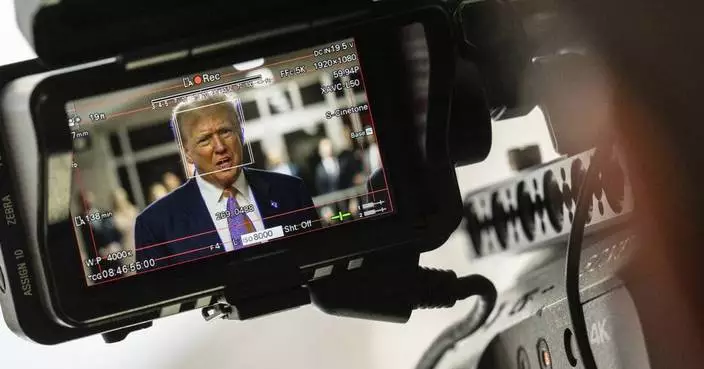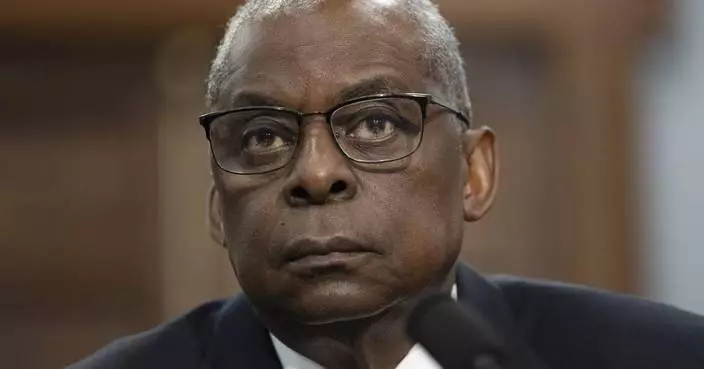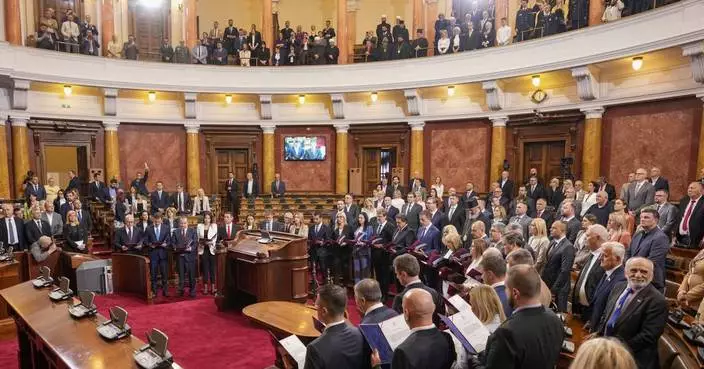President Donald Trump has said he's yanking former CIA Director John Brennan's security clearance and threatened to do the same to other current and former officials tied to the federal investigation into Russian election interference.
Trump told The Wall Street Journal he made the move because he believes the probe is "rigged" and he felt he had to act. The decision has drawn sharp criticism as an extraordinary act of retribution. But what is the practical impact? And what can Brennan do about it?
Here's a look at the controversy surrounding Trump's move:
Q: WHY DID TRUMP REVOKE BRENNAN'S SECURITY CLEARANCE?
A: Historically, former heads of intelligence and law enforcement agencies have been allowed to retain access to classified information after they leave government service as a professional courtesy and so they can provide counsel to their successors.
But Trump decided that any benefits that current senior officers might glean from Brennan's counsel "are now outweighed by the risks posed by his erratic conduct and behavior." Trump accused Brennan, who has criticized Trump's statement and policies, of leveraging his status as a former top intelligence official to make "unfounded and outrageous allegations" about his administration.
That was Wednesday afternoon. Hours later, Trump directly linked his action to the Russia probe, telling The Wall Street Journal that the investigation is a "sham" and that "these people led it!" He said pulling Brennan's clearance is "something that had to be done."
Q: WHY DOES THIS MATTER?
A: Critics see this as an example of politics seeping into intelligence and national security. Intelligence officials are asked to shun politics while collecting and distributing unvarnished information to top U.S. policymakers. They see their mission as "speaking truth to power," a mantra often used in describing the intelligence agencies' historical relationship with any president.
In punishing a former official, who was also a public critic, Trump could send a message to current officials that he does not want to be challenged.
"Disastrously, the president's openly retaliatory actions could reverberate throughout the government, silencing whistleblowers and potentially giving other officials a carte blanche to do the same," said Danielle Brian, director of the Project On Government Oversight, a nonpartisan government watchdog.
Trump said in a statement: "Any access granted to our Nation's secrets should be in furtherance of national, not personal, interests. For this reason, I have also begun to review the more general question of the access to classified information by former Government officials."
Q: WHY DO FORMER OFFICIALS RETAIN ACCESS TO CLASSIFIED INFORMATION ANYWAY?
A: Mostly so they can give advice. The government keeps the clearances active for some former high-ranking officials only so they can be consulted on specialized or secret matters, said John Sipher, former deputy group chief of Russian operations in the CIA's Central Eurasia Division.
For example, Michael Morell, former deputy and acting director of the CIA, headed a review on the National Security Agency after former NSA contractor Edward Snowden released classified documents, he said. These former officials don't have access unless the U.S. government needs them for something, Sipher said. They do not retain unfettered access to classified computer systems.
California Sen. Dianne Feinstein, a Democrat on the Senate Intelligence Committee, said there's a good reason that former national security officials are granted continued access to sensitive information. "Their knowledge and understanding — and, in many cases, direct involvement — of complex global issues is second to none, and they offer invaluable service by collaborating with current national security leaders," she said.
But many former officials use their clearances to help secure positions in the private sector or at federal contractors or security firms where clearances are required. If Trump followed through on his threat to revoke the other officials' clearances, it could mean a financial hit for them.
Q: CAN BRENNAN CONTEST THE PRESIDENT'S ACTION?
A: It's still unclear whether Trump's pulling of Brennan's clearance was an official "revocation" or an "administrative termination."
When asked, the White House referred questions to the CIA, which holds Brennan's clearance. The CIA said it does not comment on individuals' security clearance matters and referred calls back to the White House.
The difference matters. Administrative terminations are common and typically occur when a security clearance holder leaves one job and could end up working in another agency or company that requires one, according to John V. Berry, an attorney who represents federal intelligence employees on security clearance issues. In these cases, the clearance is deactivated until it is reactivated at a later time.
Official revocations are different. A person whose clearance has been revoked typically can appeal the decision. But it's unclear if that due process applies to Brennan and how an appeal would work.
"This has never really been done before. There's the question of who is going to hear the case? The White House? The president could designate someone to do it or hear it himself," Berry said.
Steven Aftergood at the Federation of American Scientists' Project on Government Secrecy said he doubts that the right to appeal included in the executive order would be available in Brennan's case.
"Brennan's clearance was not revoked by an agency head, but by the president," Aftergood said. "There is no higher authority in the executive branch to whom Brennan could appeal."
Brennan has not said what he'll do next.










